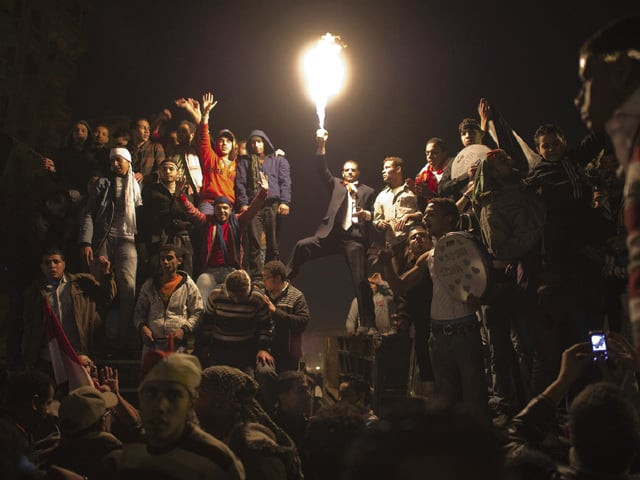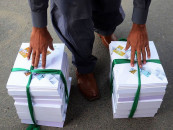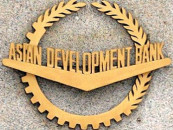Egypt: The end of the beginning
Mubarak’s departure in itself means little.

Egypt: The end of the beginning
Egypt’s authoritarian structure — authoritarian because, though the country has seen elections, they have hardly been democratic — has been in place well before Mubarak came to power.
Before him, Muhammad Anwer El Sadat ruled from 1970 to 1981. Before him Gamal Abdel Nasser ruled from June 23, 1956 to 1970, and before him Mohammad Naguib held power from 1952 to 1956.
The faces at the helm changed but in reality, the system was run by the same military-backed regime since 1952. Each deputy conveniently takes over from the incumbent. This has been the status quo for 59 years.
Naguib took power following a military coup d’état in 1952. Nasser, Naguib’s supposed deputy would eventually take over the reins a few years into the ‘revolution’.
In 1970, after Nasser died of a heart attack, his vice-president, Sadat took over.
Sadat ruled for 11 years, and, following his assassination, his vice-president, Hosni Mubarak, took over
Now, with Mubarak’s exit, what remains to be seen is if his vice-president, Omar Suleiman, who was handed the reins during his last few days, or any of other Mubarak’s long-time loyalists, such as Egypt’s Defence Minister Field Marshal Muhammad Hussein Tantawi, takes over. If they do come to power, the White Revolution, as it is being called, will have amounted to nothing.
The game plan: filling the void
With Mubarak gone, the military is in charge of the country through the euphemistically named ‘Higher Military Council’ (HMC).
The HMC has pledged to hold power only until the planned polls in September, and the nature and transparency of the elections will be the most important part of the process, as will the laws governing them.
Over the last 59 years, elections have largely been a farce in Egypt, with the regime using them to prolong its rule or bring in a chosen successor, who then propped up his rule through a dummy parliament and prime minister. And then the cycle repeats yet again.
The current situation, however, is a game-changer. It now seems the military-backed establishment will not be able to perpetuate its hold on power without serious political upheaval.
Nasser died suddenly and in the vacuum left by his death, Sadat was able to slip, or be slipped, in. Though he was unpopular towards the end, Sadat’s assassination shocked Egypt and allowed his chosen successor, Mubarak, to slip in too.
Mubarak, however, was thrown out by the people and anyone even remotely associated with him is currently deeply despised. Nothing shocking enough has happened to veil a push to perpetuate power and bring in a Suleiman or Tantawi.
And that is what makes the next few months in the lead up to the elections more interesting.
This is where the status quo vs change battle will be fought.
Though the military is now asserting itself by effectively forcing pro-democracy elements to ‘get back to work’ after 18 days of unrest, and has also banned public meetings of labour and other unions, the reality is that, for the first time in six decades it is on the back foot, despite some cautious support from the people because the generals did not take Mubarak’s side during the protests.
Before Mubarak’s exit, the September elections were meant to be only for the slot of president, while the parliamentary elections were not to be held up until 2015.
However, the HMC has had to scrap the Constitution (which had many key anti-democratic provisions that date back to Nasser’s regime), and the massive pro-democracy protests have demanded that Mubarak’s NDP (effectively an Army party) be sidelined — which it has been with the dissolution of the parliament.
The dissolution of parliament and constitution means that the entire political system is now up for change. There is clearly a huge political vacuum. And politics, just like nature, abhors a vacuum.
The faces: out with the old, in with the new
There is tremendous speculation over who will come out to be Egypt’s next leader. People also wonder if the military will actually risk ceding power through free and fair elections for the post of president.
There aren’t many names that come immediately to mind, given that over a 30-year period Mubarak effectively crushed all possible and potential across the entire political spectrum.
The name Amr Moussa has recently cropped up, as he has announced that he will be contesting the next elections. He is a respected figure in Egypt and abroad given his role in peace initiatives with Israel, but has past ties with Mubarak. He was the ousted president’s foreign minister up until 2001, and since then has held the largely ceremonial post of heading the Arab League.
Global powers may support the experienced and diplomacy-inclined Moussa, but it remains to be seen where he stands with the military, given that reports suggested that he had a falling out with Mubarak. Conversely, a man who has already been part of the system since before Mubarak took power also may not fit in with the peoples’ desire to see change and fresh faces.
Of course, there will be attempts by the establishment to bring back familiar faces, but this runs the risk of angering an already charged population.
There is a very real chance the polls will be postponed on the premise of ‘instability’ and ‘security’ concerns — which could be a route the HMC takes to let sentiments against pro-military, pro-Mubarak elements such as Suleiman or Tantawi die down. Perhaps this is why Tantawi was given the ‘charge’ of the HMC instead of heir-apparent Suleiman, Mubarak’s trusted deputy, who can now lay low till the situation cools down and then return as a ‘legitimate’ presidential candidate.
A name that has made the most headlines is that of Mohamed ElBaradei, the former chief of the international atomic watchdog, a Nobel laureate and a face that was omnipresent during the recent uprising against Mubarak.
The world may know ElBaradei, but it seems many in Egypt do not, especially when you venture out of the cities. His stand vis-à-vis the outgoing president and his regime will not have endeared him to the military establishment either.
But as a part of a greater understanding, he could possibly be thrust into power given his potential saleability with both the people as well as with the West.
Who’s afraid of the Ikhwan?
The prospects of the much-debated (and feared) Jama’at al-Ikhwan al-Muslimun (The Muslim Brotherhood) coming into immediate power are misplaced only to the extent that they may not have a leader to contest a presidential race, which depends more on individual personality than on collective political programmes.
The ‘threat’ they pose is more in the parliamentary race.
What could be pivotal is the Brotherhood’s support for ElBaradei, and some sort of possible nexus there. Early in 2010, the group said it would support him if he were to run in the presidential race. If this continues even now that Mubarak, their common enemy, is gone, Baradei’s standing could receive a huge boost locally and make him the favourite to take over, and conversely give the Brotherhood a shot at direct political power.
The law: change is also dependant on the ‘new’ Constitution
More important than who comes to power in Egypt is what sort of system is introduced when the Constitution is “rewritten” under the HMC’s watch, and how free the polls will be.
What will the new power dynamic between the traditionally powerful executive and impotent parliament be? Will bans on certain types of parties (such as religious ones) continue? Will the executive continue to hold inordinate sway — which is the case with all Middle Eastern ‘democracies’?
If not, then the prospects of meaningful democratic change are greater in Egypt and could have an effect on other regimes in the Middle East parading as democracies or semi-democracies, which, like Egypt, are in reality run either by a single person or family or an influential group.
The dark horse: the Brotherhood’s chances
If this is indeed the case, as it should be, then the equation turns dramatically in favour of the Brotherhood emerging as a potent political force. The group has been at the vanguard of democratic struggle in Egypt since it was first banned in 1955 by Nasser, regardless of the fear it instills in the West and Israel and regardless of being disqualified and fettered by law.
If nothing else, the Brotherhood has, for a long while, been the only organised political force in Egypt along with Mubarak’s NDP. And with the inevitable spurning of the NDP, the Brotherhood stands to gain the most, even though it did not directly participate in the Egyptian revolution.
Despite the fear of its Islamist nature and radical roots, the Brotherhood’s main support comes from its widespread and highly effective social programs. The Ikhwan, which started as a social organisation, runs schools, charities and hospitals across Egypt. And this has been a great source of strength for them in a country with deep economic divides.
So how have they performed when compared to other parties? Let’s start with the 2000 elections: despite many fetters placed directly on the party, the Brotherhood was able to comfortably outshine the combination of the Liberal, Nasserist, National Gathering, and Wadf parties, who ran 352 candidates but took only 16 seats (3.5 per cent of the assembly). In comparison, the Muslim Brotherhood, despite massive pressure and an official ban, was able to clinch as many seats by running only 63 candidates.
By the 2005 elections, independent candidates representing the group secured 88 seats (about 20 per cent of the parliament).
In 2010, the Brotherhood took a beating at the hands of the NDP — but then so did all parties, in an election that was so controversial that it spurred “concern” and “disappointment” even from staunch Mubarak ally, the US.
The question is, can the Brotherhood overcome the ‘fear’ surrounding it — among in the local elite and the international powers. An even greater danger is that the Egyptian establishment, addicted to power, will try and water down reforms and control the aftermath of the revolution. This will likely not be acceptable to a people who have so recently tasted the heady brew of freedom, and their reaction would truly be something to fear.
According to diplomatic cables leaked by Wikileaks, discussions between US officials and the Egyptian government and opposition leaders often focused on the possibility of change within the regime.
A leaked cable from January 2010 summarises US Assistant Secretary of State for Democracy, Human Rights and Labour Michael Posner’s meeting with members of Egyptian civil society as such: “Opposition political leaders agreed that prospects for significant political reform are slim while President Mubarak remains in office. Most expected Mubarak to be a candidate in 2011, and predicted the military would play a role in succession to ensure stability.”
A separate cable speaks of the FBI’s Deputy Director’s meeting with Egyptian intelligence head Abdul Rahman and addresses the issue of the Muslim Brotherhood: “State Security Investigative Service (SSIS) head Abdul Rahman spoke at length about the Egyptian Muslim Brotherhood (MB), terming the group “terrorists, not political oppositionists.” During a lengthy heartfelt monologue, Abdul Rahman asserted that, “you just do not understand the MB like we do. It is an extremist group, from which all Islamic extremists have sprung, and even now, despite having changed tactics and not engaging in actual violent operations, it is still providing financial support to Hamas.”
The delicately balanced US-Egypt relationship is referred to many times throughout the leaked cables, as is illustrated by a cable regarding a meeting of US senators with then President Mubarak: “In an unusual, if oblique, reference to US assistance to Egypt and calls for political reform, Mubarak told Senator Dorgan that “Egypt will never accept pressure. However, we are willing to be persuaded.”
Published in The Express Tribune, Sunday Magazine, February 20th, 2011.



















COMMENTS
Comments are moderated and generally will be posted if they are on-topic and not abusive.
For more information, please see our Comments FAQ